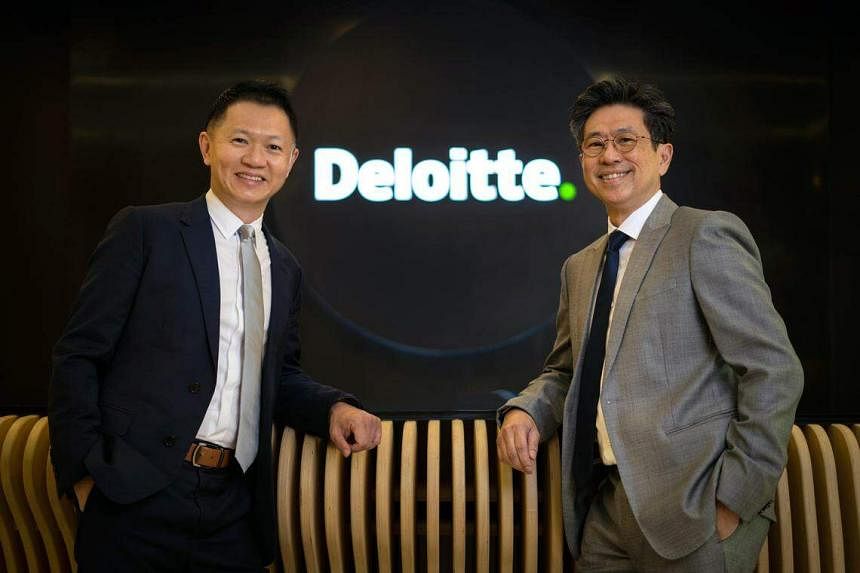SINGAPORE – Big Four accounting giant Deloitte plans to add around 3,000 new employees in Singapore within the next five years as part of its growth plans across the region.
About a third of the new jobs here will support its regulatory services such as audit and tax.
Deloitte aims to double both its 13,000 headcount and US$1 billion (S$1.3 billion) revenue over the next five years in South-east Asia, where demand for its professional services is expected to surge.
Incoming South-east Asia chief executive Eugene Ho outlined the plans at a briefing on March 16 to announce his June 1 takeover from two-term chief Philip Yuen.
“We are open to recruiting from all educational backgrounds, including accountancy, engineering and business, and even psychology students. We are willing to attract good talent and train them,” he said.
While about 70 per cent of its new hires will be for services such as consulting, risk advisory and financial advisory and assurance services, Mr Ho underscored the continued importance of traditional accountancy skills.
“I can attest that the skills and acumen required of accountancy are valuable,” he said. “Accountants are highly quantitative, analytical and understand the finance language. They are not only sought after as auditors and tax professionals, but they are also recognised as strong assets by consulting practices.”
The rise of the tech boom in recent years has taken some shine off the accountancy profession – much like for law and business – in Singapore as well as globally.
A Bloomberg Tax report noted that the number of employed accountants and auditors in the United States had fallen 17 per cent in 2021 after peaking in 2019.
In Singapore, while university cohorts of accountancy graduates have dropped in tandem with admission criteria, demand for qualified accountants – which is somewhat tied to economic growth – continues to grow.
In recent years, the Government and accountancy bodies have sought to address issues of low starting pay and onerous workloads.
There are about 100,000 finance and accounting professionals here with around 7,000 jobs expected to be added to the sector by 2025.
Executive director Shalynn Ler from executive search firm Ethos BeathChapman said companies struggle to fill roles at the assistant manager and manager levels, and some are turning to neighbouring countries.
Tech layoffs that have soared to over 100,000 since they began last November might give the sector reprieve.
Accounting and finance workers in the technology sector were mostly spared, she said. “Having gone through the tech crisis, candidates who are now still studying may start to view accounting as an attractive proposition for a career again,” Ms Ler added.
As a technology and finance hub, Singapore will have a guaranteed flow of jobs for accounting and finance professionals, she said.
Mr Teo Ser Luck, president of the Institute of Singapore Chartered Accountants (ISCA), said: “There is a misperception among young people that accountancy may be less exciting than some emerging fields.”
It is, in fact, “a passport” to enter diverse careers such as in entrepreneurship, fintech, banking, operations, data analytics and sustainability, he said.
ISCA is offering more than 400 courses, including digital finance and sustainability, financial forensics and data analytics, to help raise industry standards.
But the strain in supply and bigger responsibilities such as sustainability and complex business demands are also making “the search for experienced and qualified chief financial officers (CFOs) challenging”, Mr Teo said.
Mr Jeffrey Ng, regional director for recruiter Michael Page, said firms today are more willing to promote young high-performers to chief financial officer roles. “In the past, you probably need to be in the mid- to late 40s. But now, we are seeing candidates in their late 30s or early 40s becoming CFO of a company or a large multinational in Singapore,” he said.
Mr Ng, a chartered accountant himself, said: “One of the fundamental requirements of being a CFO is to be a qualified accountant.
“Right now, we don’t see a shortfall because the CFOs today were graduates, like 15 years ago. In those days, accountancy was still a very prestigious, sought-after degree,” he said. “My concern is that 20, 10 years down the road, things would change.”
Parachuting talent from overseas into CFO positions will not be a sustainable option, he said.
What about tapping mid-career candidates?
It will take at least three years to get the qualifications, making it unlikely to work, he said. “And then, there’s obviously no guarantee that you can become the CFO.”


